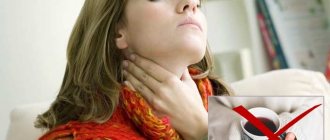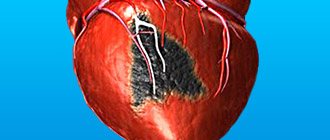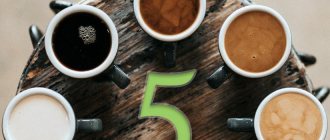Hello.
And again we return to the topic of coffee - a popular drink all over the world with a unique aroma and an invigorating effect on the body. I have already talked about the negative effects of coffee on health and the beneficial properties of the drink. He paid special attention to the problem of caffeine overdose. In this article, I will introduce you to the concept of coffee addiction and share the secrets of how to stop drinking coffee, but feel alert and active throughout the day. If you are a coffee lover or a big fan of drinking aromatic drinks, this information is educational and necessary for you.
How difficult is it to give up coffee?
Medical research has been conducted on the topic of coffee addiction for quite some time. Today, most narcologists are inclined to believe that the caffeine it contains can actually cause addiction in most people, and not so much physical as psychological.
A term was even introduced to denote this type of addiction - caffeineism. It is officially included in the international classification of diseases.
It’s worth immediately reassuring coffee lovers with the fact that great willpower is not required to give up coffee. Caffeine is a relatively weak stimulant.
In most cases, a person who drinks this drink moderately, even for several years, can completely give it up without contacting a narcologist.
Some of the most pronounced signs of caffeineism include:
- Bad mood and difficulty concentrating without another dose of coffee;
- Avoid other drinks. Many people easily alternate coffee with tea. They drink coffee in the morning to stay alert, and in the afternoon they prefer aromatic tea. This is a good habit, as tea contains theine, which stimulates more gently. But if coffee has replaced all drinks in a person’s diet, then this is a reason to think;
- Increased irritability and insomnia.
Point 1: Almost no one in this world likes the taste of coffee.
| Coffee is tasteless! |
If you try to convince me, I'm sorry, I won't believe you. My long practice shows that people drink coffee solely for the effect (it invigorates! and how! - ?). The taste of the coffee is, to put it mildly, not very good. Even the freshest espresso from the best organic beans. The taste is bitter!
And even sour, to be honest.
It’s not for nothing that varieties like latte-macchiato-cappuccino are so popular in the world... Anything with milk. Or even just with sugar. And even better, with both.
When I suggest my clients give up milk and sugar, a PROBLEM immediately arises: how then to drink coffee?! Then I ask them the question: “why do you drink coffee at all if you don’t like it in its pure form?”
In general, we sorted it out with taste. Coffee is not a tasty drink. The fact that you drink it is just a matter of habit. And addiction.
What happens if you suddenly stop drinking coffee?
Those who dare to abruptly give up caffeine may develop withdrawal syndrome, characterized by the following unpleasant aspects:
- Drowsiness . Caffeine inhibits the functioning of adenosine receptors in the brain, which are responsible for relaxation. Therefore, by drinking coffee, a person quickly dispels morning drowsiness. When you refuse an invigorating drink, it is more difficult for the brain to get out of the “relaxed state” after sleep, since it is accustomed to the external stimulant in the form of caffeine. At the same time, reduced performance may persist throughout the day;
- Migraine . Those with low blood pressure will have to face this problem. Thanks to caffeine, blood vessels narrow slightly, which simultaneously leads to an increase in blood pressure and a slowdown in cerebral blood flow. When caffeine does not enter the body for a long time, blood circulation in the brain increases and the blood vessels dilate again. This leads to throbbing or pressing pain in the head;
- Decreased concentration;
- Bad mood . This is because caffeine enhances the release of dopamine. Such regular stimulation does not go unnoticed. After its abrupt disappearance, some people experience an inexplicable feeling of anxiety and depression;
- Increased appetite . This invigorating drink contains a lot of saturated amino acids and other substances that suppress hunger. This is why coffee lovers are less susceptible to the desire to quickly snack on something.
All of the problems listed above should go away completely 3 weeks after quitting coffee.
Benefits of Abstaining from Caffeine
The benefits of giving up coffee are undeniable. There are a number of advantages to weaning a person off the coffee drink:
- Normalization of hormonal levels . Caffeine promotes increased production of stress hormones, including cortisol. Its concentration after a cup of espresso rises to a level that is observed with severe psycho-emotional stress.
- Improved sleep quality. Even a small portion of an invigorating drink can negatively affect your night's rest. In the course of research, scientists have proven that with constant consumption of caffeine, sleep becomes restless and fatigue is felt during the day.
- Eliminate feelings of anxiety. A natural stimulant provokes an increase in blood pressure and increased heart rate. In addition, panic attacks are possible against the background of its use.
- Disappearance of heartburn. The harm of coffee lies in its irritating effect on the mucous membranes of the gastrointestinal tract and increased acidity. This causes heartburn. It is usually observed when it is consumed on an empty stomach.
- Returning the whiteness of tooth enamel.
Tips for overcoming caffeine addiction
There are several effective tips to help you overcome your coffee addiction:
- Smoothly reduce the dose . Don't suddenly stop drinking coffee. In this case, the withdrawal syndrome will be more severe. It's better to do it gradually. For example, a person is used to drinking 5 cups of an invigorating drink. In this case, every week he reduces the amount of coffee he drinks by one cup. When a person reaches 1 cup a day, then for the last month you can drink coffee every other day, then once a week, and eventually give it up altogether;
- Consider the amount of caffeine . Espresso contains about 50 mg of caffeine, while instant coffee contains 40 mg. Therefore, you can first switch from espresso to instant coffee;
- Start giving up coffee from the first day of your vacation. Being outside the work environment makes it easier for a person to endure withdrawal symptoms in the form of drowsiness and low mood;
- Replace coffee with delicious food or sweets . Instead of the usual cup of an invigorating drink, you can treat yourself to sweets or chocolate;
- Walk or jog more often . Active movement coupled with fresh air will help the body cope with the lack of caffeine much better.
Coffee and fatigue
About 45 minutes after we drink a cup of coffee, caffeine begins to take effect. The body synthesizes dopamine, serotonin and endorphins - hormones of happiness. At the same time, we feel cheerful - due to the fact that caffeine affects one of the centers of sleep and wakefulness in the brain and blocks fatigue, and at the same time stimulates the synthesis of the stimulating hormones norepinephrine, adrenaline and acetylcholine. Here's how it works.
While we are awake and expending energy, auxiliary cells of brain neurons, astrocytes, secrete a special substance - adenosine. Every second of non-sleep, the concentration of adenosine increases until we feel sleep pressure: the eyelids stick together, and the jaw uncontrollably tries to yawn. This is how a high concentration of adenosine tells the brain that it is time to rest - unless we drank coffee. Caffeine molecules are similar to adenosine molecules, so they can take their place and block adenosine-sensitive receptors. In this case, caffeine acts as the antipode of adenosine and, instead of slowing down and calming neurons, begins to stimulate them. So caffeine prevents us from feeling tired - but does not eliminate the fatigue itself and the need for sleep.
Coffee's stimulating properties have a downside. Caffeine is completely eliminated from the body within 8–14 hours. Peak concentration is reached at approximately 30 minutes, and half-life occurs after 4–5 hours (caffeine breakdown schedule). Then the receptors become sensitive to adenosine again, and fatigue returns to us - all of it, both the one that we blocked and the one that accumulated while the stimulant was in effect. I noticed that when I drink coffee, after the peak of alertness, fatigue returns abruptly, rather than gradually. It was as if someone had pressed a switch and the strength evaporated. They could only be brought back with one more dose, and this led to a new problem.
To block adenosine receptors and feel alert, a small amount of caffeine is enough - about 40 mg. This is just two cups of strong green tea. But the body develops a tolerance to coffee, and for an invigorating effect we need more and more coffee. Because I was drinking coffee, I quickly became tired again, and at the same time my receptors were getting used to caffeine, I consumed more and more caffeine and regularly exceeded the 40 mg dose.
This excess amount of caffeine can lead to anxiety, nervousness, and confusion. I didn’t notice it myself, but from the outside I always looked twitchy, in a hurry and worried. I remember my colleagues telling me about this, but I didn’t attach any importance to it, attributing it to stress and general anxiety, until I began to study the effect of caffeine on the body. In addition, in the evening I was still under the influence of the stimulant and tossed and turned in bed for a long time without sleep, and also often suffered from headaches, which, I assume, arose from hypersensitivity to the adenosine accumulated in the body.
Replacing coffee with another drink
The most optimal method of giving up coffee is to replace it with another drink :
- Chicory . The best option. Its taste is only vaguely reminiscent of coffee, so avid coffee lovers are better off purchasing special brands with a flavor, such as cappuccino. Chicory also has a positive effect on the nervous system;
- Green tea . It has less caffeine than black tea. It is moderately invigorating, quenches thirst well and has a pleasant taste;
- Cocoa . Everyone's favorite drink from childhood, with minimal caffeine;
- Decaffeinated coffee . If you really don’t have the willpower to give up your favorite taste in the morning, then you’ll have to buy expensive decaffeinated coffee. As you can guess from the name, it contains virtually no caffeine, and its aroma and taste are indistinguishable from regular coffee.
What can you replace coffee with?
There are many options on how to survive the withdrawal syndrome of your favorite drink and quit drinking coffee without problems. It is quite possible to find a suitable replacement for him. So…
Decaffeinated coffee
He's a decaf. In fact, it contains caffeine, but 97% less than regular Arabica. To obtain this paradoxical product, Arabica and Robusta beans are soaked or steamed. After which caffeine is removed from them using a solvent. The structure of the grains changes. Like regular espresso, decaf can be hard on your stomach, so don't drink it before breakfast.
Chicory
Your grandmother's favorite drink... Don't laugh, it's really healthy and invigorating. There is no caffeine in it, but there is inulin, which has a positive effect on the pancreas. You can brew it with water, in a French press, or in a Turk. The thing is quite tasty, and foreign manufacturers mix it with various herbs.
poppy
It is also called Peruvian ginseng. In fact, this is a Peruvian radish that has the ability to invigorate no worse than cappuccino. It is rich in vitamins and other benefits, but is not classified as a superfood and body stimulant only because it is still little known. The downside is that the taste is not very bright. Therefore, maca is mixed with milk and cream.
Who quit drinking coffee: what is the effect?
If a person has found the courage to last without coffee for at least a month , then he can observe positive changes in the body :
- Sound sleep appears . Some studies show that caffeine can affect brain function even 6 hours after consumption. Therefore, drinking coffee in the early evening can lead to restless sleep or difficulty falling asleep. Complete exclusion of coffee from the diet is the path to healthy and sound sleep;
- Skin condition improves . Caffeine impairs the absorption of some beneficial microelements needed by the skin;
- The emotional background is normalized . The energizing effect of caffeine is a double-edged sword. On the one hand, coffee will indeed provide a temporary mood boost. But at the same time, many people experience increased nervous excitability, they react more sharply to stressful situations and are more likely to quarrel with a colleague or household member. If you exclude coffee from your diet, your mood swings will not be as severe.
You don't have to completely give up your favorite invigorating drink. It is enough to observe the measure and use it only in the morning or a couple of times a week. If a person decides to give up coffee, then it is recommended to gradually reduce the number of cups drunk per day, simultaneously replacing it with chicory or green tea.
How does a habit start?
The main active ingredient in coffee is caffeine. This natural alkaloid is found in tea and cocoa, but the leader in content is natural robusta grains. After one cup, a person’s performance increases and their mood improves.
- Don't miss: The effects of coffee on the brain and human body
1-2 servings of coffee per day for a healthy person are absolutely harmless and only have a beneficial effect on health. But if you abuse the tonic drink, increasing the dose and drinking 4 or more cups per day, you may develop an addiction similar to nicotine.
Several factors contribute to addiction:
- Lack of sleep. Due to night shifts and short sleep at night, lethargy and drowsiness may occur. Trying to overcome it, a person brews coffee. The invigorating effect is observed for only a couple of hours, and then the body again requires rest. If there is no proper sleep, the nervous system is depleted due to artificial stimulation by caffeine. Over time, only shock doses of the drink help to cheer up.
- Artificial lighting. When a person spends most of the day indoors without natural sunlight, biological rhythms are disrupted.
- Smoking. Small doses of coffee have no effect on smokers, and often nicotine and caffeine addictions go hand in hand.
the truth about coffee
The truth, as usual, is somewhere between these extremes: we have already written about a serious study that put an end to many years of debate about the benefits or harms of coffee. Scientists have discovered a gene that is responsible for how the body processes caffeine, and came to the conclusion that globally all people are divided into three groups: those for whom coffee is given easily and without negative consequences, those who can drink it, even for their body This is both stress and those whose bodies are absolutely unable to cope with caffeine.
However, for the sake of objectivity, we must also recognize the fact that the fashion for coffee drinks and a certain lifestyle has actually increased the consumption of this drink by those who would be better off staying away from caffeine. And, unfortunately, according to the same study, there are many more such people than those who do not experience any problems when consuming caffeine.
Who shouldn't drink it anyway?
There are certain categories of people who need to limit coffee, or better yet, give it up completely. These conditions are described below:
- Pregnancy. Caffeine penetrates the feto-placental barrier and causes many negative effects in the fetus. This substance also has a harmful effect on the tone of the uterus. Scientists have proven the following adverse effects of drinking coffee during pregnancy: stillbirth, miscarriage, premature birth, fetal growth retardation, intrauterine fetal hypoxia.
- Breast-feeding. Caffeine can also pass through breast milk, increasing the risk of developing diseases of the cardiovascular and nervous systems in the child.
- Depression and anxiety disorders. Caffeine aggravates the course of any mental disorders.
- GERD. Coffee increases the incidence of this disorder and aggravates its course if present.
- Gastritis and peptic ulcer of the stomach and duodenum. Coffee increases the effect of hydrochloric acid in gastric juice on the affected gastric mucosa.
- Taking medications. Caffeine is incompatible with such groups of medications as antidepressants, antibiotics, and glucocorticosteroids.
- Sleep disorders. Coffee further disrupts the structure of this complex physiological process.
- Hypertension and symptomatic arterial hypertension. Caffeine can increase blood pressure levels. Increase in blood pressure even by a few mm. Hg Art. in such conditions, the risk of developing myocardial infarction or stroke increases several times.
There are other contraindications to coffee. Drinking the drink against the background of these conditions is fraught with aggravation of the general condition and the development of irreversible complications that can lead to death (perforation of an ulcer, heart attack, stroke, etc.).
October 26, 2016
58141 views
Ekaterina Jensen Dietitian and nutritionist. Creator of the project “Food for Life!” I specialize not only and not so much in weight problems, but in treating diseases with the help of nutrition. I see my mission as helping people become healthy on their own. My motto: “Health - without drugs!” I believe that everything is in our hands - both happiness and health. I am an optimist, I love life and people with their exciting stories.
- food4vita.ru
- facebook.com/profile.php?id=100006703176675
- vk.com/pitaniedlazdorovia
- instagram.com/food4vita
I haven't drunk coffee for over two years now. This did not happen by chance. It all started in August 2014. I started taking courses in dietetics in Copenhagen. At home I had a wonderful coffee machine that made the best coffee from freshly ground beans, and regular espresso, and cappuccino, and latte. Just press the button and voila! - the divine drink is ready.
I have never considered myself a coffee drinker, and my daily limit rarely exceeded three cups. But at the courses in Copenhagen there was not only no coffee machine, but no coffee at all. I lived on a school campus where this drink was banned. Of course, I could have run to the nearest cafe, but for some reason I thought that I could live on tea. The only “but” was that I constantly had a headache. She started to get sick in the evening of the first day of training and was sick non-stop for 2-3 days until she returned home. This was repeated several times - in every study session I taught at school.
I couldn't understand what was going on. I slept 8 hours a day, ate the freshest, proper organic products, drank a lot of water, ran in the mornings and took long walks in the evenings... There was no answer.
One day I complained to a classmate about my strange headaches. She assumed it was withdrawal from caffeine withdrawal. It was VERY difficult to believe this. I don’t drink gallons of coffee, I don’t feel like drinking coffee at all. Or is it pulling? I decided to check it out. The next time I bought a paper cup of cappuccino right after arriving at the Copenhagen train station, I drank it on the way to school. And... there was no headache that day!
I seriously thought - do I even need this “magic” drink if I react so strongly to its absence?
As you know, information about coffee is very contradictory. Sometimes coffee is useful, sometimes it is harmful, sometimes it invigorates, sometimes, on the contrary, it reduces energy levels and worsens sleep. Either coffee fights aging, or it leads to faster wear and tear of both the brain and the body as a whole... The forest is dense!
I also read articles from people who gave up coffee. And they all unanimously claimed that they began to feel more energetic. I wanted to try this for myself. Most of those who gave up coffee wrote that they needed at least two months to experience all the delights of life without coffee. I set a deadline for myself - three months. And the experiment began.
At that moment, I was driven primarily by curiosity. I wondered how my life would change after quitting caffeine. And secondly, I really don’t like being dependent on anything. And the fact of coffee addiction was obvious - a day without caffeine guaranteed headaches and poor sleep. I really didn't like it.
I didn't expect it to be easy. Previously, when I gave up sugar, I had already experienced all the “delights” of fighting addictions: headaches, poor sleep, irritability, fatigue... Similar symptoms were not long in coming this time. The first week was simply terrible! My head hurt. In the morning I could not tear myself away from the pillow, and in the evenings, although I was tired, I could not sleep. When I finally fell asleep, my sleep was restless. I woke up 100 times a night.
I was constantly irritated. Absolutely everything infuriated me: any weather, children - my own and strangers, neighbor's dogs who tried to get into our garden, drivers on the roads, salespeople in stores, my husband and all his relatives, the number of which, as it seemed to me at that time, had increased incredibly... The only desire was to drop everything to hell, drink my only cup of coffee a day and finally sleep normally, and not stagger from corner to corner, trying to muster up the remnants of willpower to do something useful either around the house or at home. work (costs of own business and a free schedule: you can’t force yourself - no one will force you).
I was ready to break down a thousand times. The miracle coffee machine stood in the most visible place and smiled ominously at me, saying, what, dear, maybe you’ll give up your stupid experiments? All you need to do is press a button to get rid of the torment...
I still can’t say for sure what prevented me from breaking down in the first two weeks. They were the heaviest. I'm surprised I succeeded.
After two weeks, something clicked and my body rebuilt itself. The headaches disappeared, I stopped wanting to kill everyone around me, and I suddenly began to sleep well at night. But with sleep another metamorphosis occurred. I fell into a very deep sleep with my children as early as 8 pm! This didn’t go anywhere, because it’s in the evenings that I write best; evening time is reserved for working on my blog. In addition, all my nutrition clients also prefer to consult in the evenings, when their households have gone to their bedrooms. Therefore, the schedule “I go to bed at 20:00, get up at 4:00” was absolutely not suitable for me.
I started sleeping during the day to be in shape for evening consultations. Daytime naps could last up to three hours! Sometimes I set the alarm, but I didn’t have the strength to get up.
I lived in a strange, half-asleep state. Nothing hurt, but my strength decreased significantly. I continued the experiment in the hope that my energy levels would soon recover. And so it happened!
After another couple of weeks, the drowsiness began to subside. I no longer collapsed in the evenings, I slept for only an hour during the day instead of three, and there was another clear plus: my energy was constant throughout the day. I lost the desire to take a nap after lunch; in the morning I woke up before the alarm clock and managed to do a bunch of things. There were no such crazy jumps as after a cup of coffee, but there were no subsequent falls.
Coffee activates the stress hormones adrenaline and cortisol. They are the ones who give a surge of energy, for example up to about. But then the effect of caffeine wears off, and we fall not to our original zero level, but to minus. With each cup of coffee it becomes more difficult for us to get to the point, and then we fall lower and lower. This explains the fact that people who have been drinking coffee for years can easily drink a couple of cups before bed and still fall asleep. Another question is that the quality of their sleep leaves much to be desired. But this is a topic for another article.
I've come to the conclusion that this must be the price to pay for quitting caffeine - a moderate but consistent level of energy instead of strong, inconsistent bursts. So the next month passed. And a month later, a surprise awaited me: I noticed that my overall energy level began to gradually increase. It still remained constant throughout the day, but it just became MORE. I completely gave up daytime sleep, got up at six, went to bed closer to midnight, and was more alert than ever before. The game was definitely worth the candle!
Please note that I did not replace coffee with other caffeinated drinks such as strong black tea. No, the experiment was carried out in its pure form. No caffeinated tea. Only herbal tea and water. I also didn’t “catch up” with sweets and starchy foods to comfort myself. Sweets can also give you energy boosts. I knew about this, and did not exchange the awl for soap.
More than two years have passed since then. During this time I drank coffee several times. There was even a ten-day period when I drank 1-2 cups of coffee a day every day - we were with a group in the mountains of France, and there was nothing there except coffee and water. To my surprise, I got used to this drink quite quickly, I had to take my will again and give up coffee. True, the body’s reactions were no longer as severe as at the very beginning. There was drowsiness and a desire to spit on everything and drink a cup so as not to sleep on the go... But I managed to overcome myself in just a few days.
Besides these ten days, I sometimes drank a cup of coffee for taste, but there were almost always consequences. You can read more about this on my blog.
What is the status today? I have never regretted my experiment. All my suffering paid off in a big way. I've never had so much energy. Perhaps in very early childhood, which I no longer really remember. I still wake up at six in the morning, manage to do a lot of things, daytime sleepiness has left me forever, and my loved ones never tire of being amazed at how I manage to do everything.
Therefore, I can say one thing - try it too! If you have difficulty lifting your head from the pillow, can’t imagine mornings without coffee, and in the afternoon you want to either fall asleep or kill the entire office, I suggest living a couple of months without caffeine.
To make this easier for you, I am sharing practical recommendations that I hope will make your life easier:
· Be prepared for the fact that it will not be easy. The first two weeks you may have a headache, your mood will deteriorate, your sleep will worsen... Remember that this is NORMAL. There's nothing wrong with you, that's the way it should be. If there are no such consequences, then this is also normal. Just be glad that you avoided these troubles.
· In the first two weeks, it is permissible to drink green tea with reduced caffeine content. These varieties include, for example, jasmine tea and milk Oolong. The body reacts not only to the withdrawal of caffeine, but also to the withdrawal of coffee itself. Therefore, if you become completely nauseous, drink weak green tea.
· To avoid dying from fatigue for days at all, I suggest drinking ginger tea or a smoothie with fresh ginger. Ginger invigorates no worse than caffeine, but at the same time it has only beneficial properties. And this is undeniable, unlike coffee.
· Warn others that your bad mood in the next couple of weeks has nothing to do with them.
· Tell your loved ones about your experiment. I suggest calling this an experiment, and not giving up coffee. This will make it easier for those around you, and for yourself, to accept the changes. It is easier to adhere to the intended plan when there are no strict restrictions “forever”, “now never”, “refusal” (underline as appropriate).
· Before giving up, hold out for at least a month and a half. This period of time is necessary for all positive changes to appear. If you give up early, you will defeat the purpose of the whole idea. In less time, you will not understand anything and will simply waste both time and energy.
· For the purity of the experiment, after two months I suggest trying a cup of good, freshly brewed coffee . You will immediately understand by the sensations exactly HOW you react to it. And then decide whether to return to this drink, or whether to continue living without it. Personally, after my first cup of coffee, which I drank after three months of living without caffeine, I was only once again convinced of the correctness of my chosen path: I felt VERY bad.
· When the addiction goes away, if you wish, you can always treat yourself to a cup of coffee or black tea. After all, the main thing is getting rid of addiction . And if you live quietly for a month without coffee, and then at the airport you succumb to the temptation of the smells from a coffee shop and order yourself a cappuccino, well, okay! Enjoy and move on with your life. No coffee.
Definitely worth a try. After all, what do you have to lose? Good luck!
Self-development #Food #Habits











